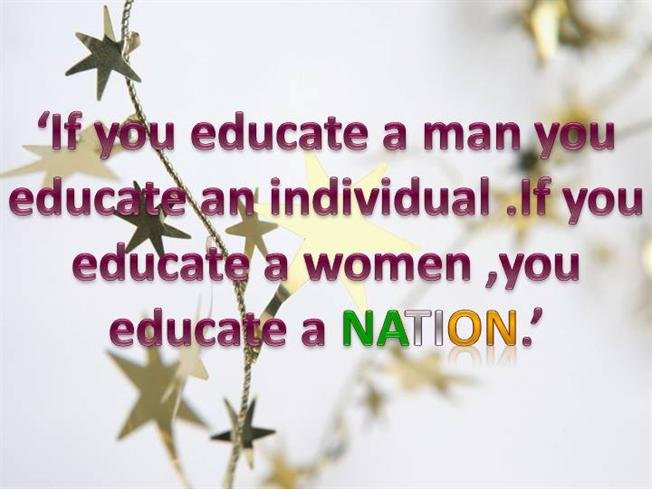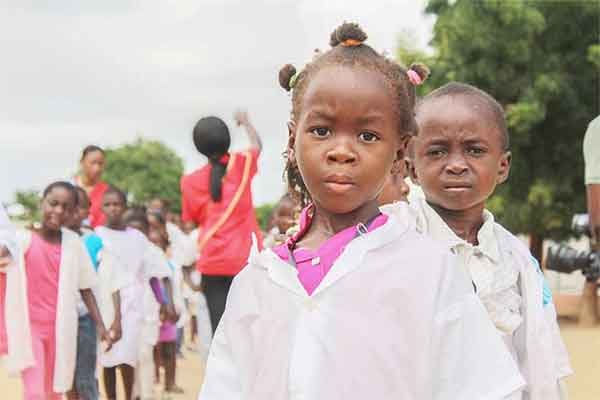Many girls today, do not have adequate education past a certain age. When a girl is 12-14 years old, the elders in the community feel she is “ripe for marriage” and their words are LAW. So what are her words worth when the elders in the community have spoken? A girl who is given out in marriage at a very tender age is placed at a very high risk. She is not matured enough to be a mother, without any skill, information and confidence that might lead to her being a better mother and wife if she were educated.
The native traditional philosophy is that a woman’s place is in her husband’s kitchen and her primary role centers on her home. This belief has kept many girls away from education. The Child’s Rights Act of 2003 prohibits child marriages and betrothals. In section 21 of the 1999 Constitution of the Federal Republic of Nigeria, any marriage contracted by anyone less than 18 years old is invalid. This is why there has been a lot of emphases, particularly in recent times, for all citizens to have access to basic education.
When a girl is given out in marriage at a very tender age, to a man who is old enough to be her grandfather, her right as a human has been abused as most Nigerians would say “she don marry her grandpa”. She has also been deprived of her right to education and will be doomed to be an illiterate forever if her husband does not give her the opportunity to school after her wedding.
At the beginning of colonialism, rigid ideas on gender were imposed on the African mind, thereafter, the woman’s role has come to be merely for sexual and commercial labours – satisfying the sexual needs of men, working in the fields, carrying loads, tending to babies and preparing food. How can a girl who is not up to 18 years old be able to execute all these duties and look after her so-called “family”? She is not matured enough to give birth and in the process of giving birth could become exposed to certain viral infections and even lose her life.

It has been established by researchers that enabling female education is crucial for national development, and the role of women cannot be underestimated. The general belief is that “when you educate a man, you educate one but when you educate a woman, you educate a nation.” This is so because the education of every child starts from the family and the mother is the first teacher. Educating the girl child produces mothers who are educated and who will, in turn, educate their children, care for their families and provide for their children.

Therefore, educating the girl child translates to better health for the future generation, reduction in child morbidity and mortality thus triggering a snowball effect of achieving all other Sustainable Development Goals in a viable manner.
The girl child needs to be educated to acquire knowledge and skills needed to advance her status for social interactions and self-improvement. The girl child education also prepares her to face the reality in society and teaches her to be a good wife and mother. When she is educated, she realises the full potentials endowed in her; she discovers to be whoever and whatever she wants to be. With education, she would break the shell of ignorance and open that of self-discovery.

